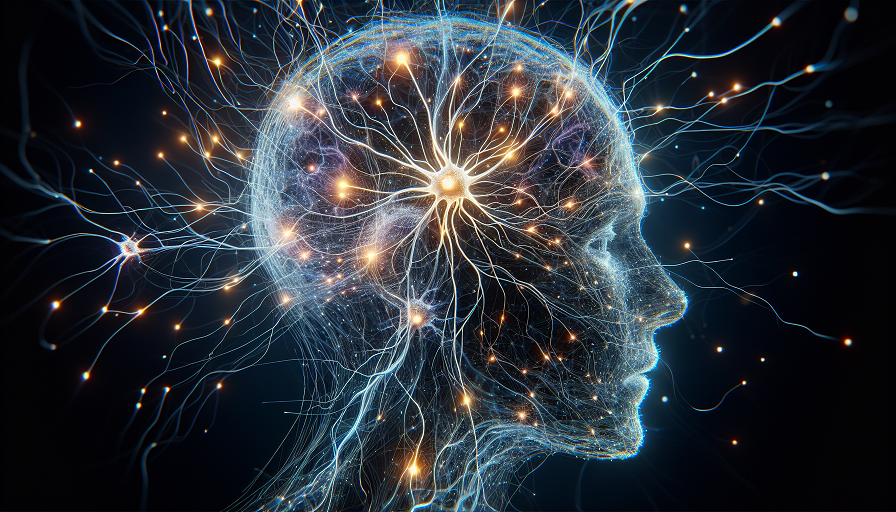
No, wearing a magnet bracelet does not directly influence cognitive energy or brain function. While magnetic therapy has been marketed for improved circulation, pain relief, and even mental clarity, scientific research does not support these claims. Any perceived cognitive benefits are more likely due to placebo effects, psychological expectation, or stress reduction rather than actual changes in brain activity.
Contents
What Are Magnet Bracelets?
Magnet bracelets are wearable bands embedded with small static magnets, often marketed as “magnetic therapy” devices. Supporters claim these bracelets can influence the body’s magnetic fields, improve energy flow, and restore balance to physiological systems. In brain health contexts, they are sometimes promoted as tools for boosting focus, memory, or alertness.
The Claims About Cognitive Energy
Proponents argue that magnet bracelets can:
- Enhance blood circulation, delivering more oxygen and nutrients to the brain
- Align the body’s electromagnetic fields for better energy balance
- Reduce stress and mental fatigue
- Support long-term neurological function
These claims are attractive, but most are not grounded in rigorous clinical evidence. The human body does not have magnetic “energy meridians” that can be influenced by static magnets in this way.
Scientific Research on Magnetic Therapy
Magnetic therapy has been studied more for pain and circulation than cognition. The consensus among medical organizations is that static magnets – like those in bracelets – have no measurable impact on blood flow, cellular processes, or brain activity. Research findings include:
- National Center for Complementary and Integrative Health (NCCIH): Reports no reliable evidence that magnet therapy helps with any health condition.
- Circulation studies: Show that static magnets cannot penetrate deeply enough to affect blood or neural activity.
- Brain studies: Unlike transcranial magnetic stimulation (TMS), which uses powerful, pulsed magnetic fields, bracelets use weak static magnets that have no measurable impact on neural firing or cognition.
Placebo and Psychological Effects
Although bracelets do not directly affect brain energy, they may influence how people feel. This happens through mechanisms such as:
- Placebo effect: Believing the bracelet enhances energy can create a real subjective sense of focus and alertness.
- Symbolic meaning: Wearing a bracelet as a ritual may reduce stress or serve as a reminder of self-care.
- Stress relief: If wearing a magnet bracelet is calming, lower stress may indirectly improve cognitive performance.
These effects are psychological rather than physiological, but they still demonstrate the brain’s responsiveness to belief and expectation.
Potential Risks of Magnet Bracelets
- False reassurance: Relying on magnet bracelets may distract from proven brain-health strategies.
- Medical interference: Stronger magnets can interfere with pacemakers or insulin pumps, though most bracelets are weak enough to avoid this.
- Financial cost: Bracelets can be expensive for a product with no proven effects.
Magnetism in Legitimate Medical Use
While magnet bracelets lack evidence, magnetism does play a role in neuroscience and medicine:
- MRI scans: Use strong magnetic fields to generate detailed images of the brain and body.
- Transcranial magnetic stimulation (TMS): A clinical tool using pulsed magnetic fields to treat depression and study brain activity.
- Magnetoencephalography (MEG): Measures the magnetic fields produced by neural activity for brain mapping.
These technologies use fields thousands of times stronger than a bracelet magnet, underscoring why consumer products cannot replicate medical effects.
Evidence-Based Ways to Boost Cognitive Energy
If the goal is to increase mental energy, safer, proven methods include:
- Regular physical exercise: Enhances blood flow, neurogenesis, and neurotransmitter balance.
- Proper hydration: Even mild dehydration impairs attention and memory.
- Balanced nutrition: Omega-3 fatty acids, antioxidants, and vitamins support healthy brain metabolism.
- Sleep: Essential for restoring mental clarity and preventing fatigue.
- Mindfulness and meditation: Improve stress resilience and attentional control.
The Bottom Line
Wearing a magnet bracelet does not directly influence cognitive energy or brain function. While some users may feel benefits through placebo or stress reduction, the magnets themselves do not alter brain activity. For genuine cognitive support, evidence-based approaches like exercise, nutrition, and sleep are far more effective than magnetic jewelry.

